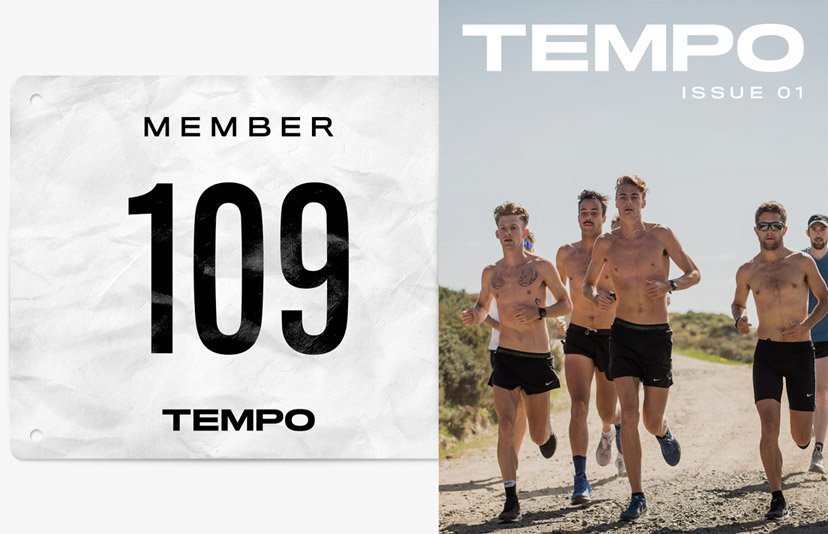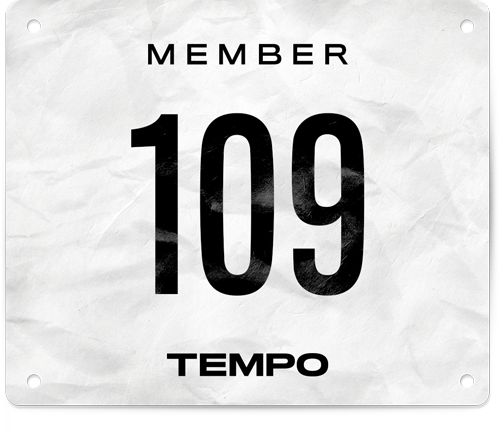Performance
When Running Takes Over
Lessons on letting go and finding your best
Dave McNeill is more than a TEMPO columnist: he's a three-time Olympian, a physiotherapist and a run coach. Catch him writing for us every couple of months.
There is something so majestic about Eliud Kipchoge. His effortless running form, his monk-like existence and his poetic perspective on life and running. Kipchoge’s exploits are well documented. “No human is limited” is more than lip-service – Kipchoge lives and breathes the ideal.
Part of Kipchoge’s majesty comes from the juxtaposition between his unfathomable grit and the ease on his face.
There is a kindness to his gaze and a softness to his expression. There’s no furrow between his brows. He is a man at peace, even 40km into a marathon.
It might be speculative to gaze into Kipchoge’s eyes and pass judgment about why he is so good. Still, maybe we can speculate that his peaceful aura and his lethal abilities on the road are not mutually exclusive at all.
When running takes over – whether that’s in the present moment or when we’re focused on what looms ahead – what really grips us is a preoccupation with the unknown.
Dave McNeill
Whatever your reason for running, the outcome in some way ties back to being a better version of yourself. To run further, to run faster, to feel happier, to feel more connected – to yourself, to others, to the universe. When we experience that, naturally, we keep running.
In every moment, our run has an intention. We use the run to engage with the present moment – to feel the run. To feel our breath, to feel relaxed, to feel our limits, to feel connected.
The run also has a purpose. A North Star. An outcome we wish to achieve. A goal. It may be performance-related, or it may simply be related to a state of physical or mental health.
There are times however when our intention and our purpose don’t align. Where we don’t feel what we expect to feel. Where our goals seem overwhelming or out of reach.
That’s when running takes over and we force things. In the present moment, there is frustration. We know we should head out that front door, but there is resistance. “I don’t want to, but I should.” We try to hit a certain pace, but we can’t. We tell ourselves it will be good to go run with our mates, to get out of our head. And we do, but we’re still stuck in our head.
When running takes over, we become overwhelmed by what’s in front. The run starts getting uncomfortable halfway through, and we doubt whether we can hold the pace or if we’ll make it to the finish line. We miss a training run or two, and our goals suddenly seem clouded by doubt.
When running takes over – whether that’s in the present moment or when we’re focused on what looms ahead – what really grips us is a preoccupation with the unknown. Not knowing how to change how we feel in the moment. Not knowing if we’ll reach our destination.
Not knowing is uncomfortable. The unknown has two sides of the coin. Everything will either work out, or it won’t. When the unknown looms, our focus often gravitates to the possibility that things won’t work out. And therein lies fear.
Fear is centred on the prospect that things won’t work out. Fear is centred on the prospect that we can’t change our circumstance. Fear is centred on our inability to control the unknown.
And this is true. There are so many things beyond our control. And to try does nothing but cause us frustration.
Instead, try to just let go. Letting go is about acknowledging, but not holding onto, the unknown. Letting go is about relinquishing control of what’s outside of us and taking control of what’s inside of us: our thoughts, our perspectives. Letting go is about replacing pessimism with optimism.
When fear drives us to retreat and avoid, letting go paves the way for us to keep putting one foot in front of the other. When fear drives us to keep pushing, letting go allows us the possibility to instead stop. To rest. To accept.
When we let go of fear and the often irrational need for control, we allow ourselves to function uninhibited. We allow ourselves to tap into the unknown potential of being human. To breath, to push, to endure, to surpass the limits imposed by our minds.
Darkness, discomfort, and disappointment are important catalysts for growth, yet fear forces us to avoid them, and in so doing, avoid the possibility of learning and growing. Without darkness, discomfort, and disappointment, it is much harder to appreciate light and love. Letting go allows us the possibility to experience darkness, so that when the light inevitably shines, it is bright.
Letting go is not a destination or an end goal. It’s an ever-present intention. Each new day, each new run presents a new unknown, and a new opportunity to let go.
I believe what Eliud Kipchoge does so well is let go. I believe the incomprehensible ease across his face, 40km into a marathon, speaks to his letting go of the fear of whether he’ll hold his pace to the end. And so he marches forth, delivering endlessly inspiring performances.
I believe Kipchoge speaks to the uninhibited potential within all of us when we let go and let our humanity shine. We breathe, we push, we live, we endure for the sake of the present moment, aware that our experience may be different, or that we might not get where we want to go. But maybe, just maybe, we will.
Truly, no human is limited.


